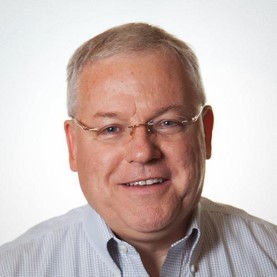

Cal Beyer
Senior Director of SAFE Workplaces
SAFE Project (Stop the Addiction Fatality Epidemic)
I remember being an impatient junior professional in a demanding role at age 27. In my zeal to help spur necessary changes to happen faster, my frustrations frequently became evident to the involved stakeholders. After a particularly contentious set of meetings, a mentor taught me to learn and apply the value of playing the “long game.” He shared words of wisdom that shifted my mindset and my actions. These four powerful words helped me to understand how to practice patience while driving strategic change initiatives. The words became a mantra: “gentle pressure relentlessly applied.”
Almost immediately, resistance among stakeholders was replaced with buy-in and increased engagement. As a result, change initiatives were implemented faster, and team successes frequently exceeded target goals.
Over time, this mindset became a skill set. Gentle pressure relentlessly applied gave me the patience to not get frustrated or give up when leaders initially did not want to talk about mental health and suicide prevention in the construction industry. I marvel when I look back and see how far our industry has come in tackling this issue.
_0.jpg)
Ashley Dyer
Operations Manager
Robins & Morton
One of my mentors really instilled in me the importance of industry engagement. He said, “You’ll get out of it what you put into it.” That has absolutely proven true — where you invest your time, you invest your life.
My primary outlet is through Associated Builders and Contractors (ABC) of Alabama, where I serve on the executive board and chair the general contractor and subcontractor (GenSub) committee. With ABC, I’ve had the opportunity to grow my network, be a voice for pro-industry policy, and support meaningful change and improvements for those of us who wear hard hats to work. It’s been an incredible professional development experience, and in the future, I’ll pass along similar advice, encouraging others to find a way to grow through service.

Julie Adams
Senior Vice President of Construction, Product
Sage
The best career advice I’ve ever received is to focus on the value you bring, not the title you hold. Titles can create invisible boxes — dictating who you talk to, what you work on and how you see yourself — but real impact often comes from stepping beyond those boundaries.
The key is to understand what truly matters in any situation, then look for ways to solve problems, share ideas and contribute meaningfully. Some of the most significant breakthroughs can happen when you go beyond traditional role expectations and have the courage to speak up.
When you center your efforts on adding value, you naturally develop a broader curiosity about the bigger picture and how your skills fit into it. That mindset not only makes you indispensable to your team, but it also opens doors to new opportunities.

Jessica Bowlin
Building Construction Program Instructor
Auburn High School, Auburn City Schools
The best career advice I’ve ever received is to stay authentic and never stop learning. In both construction and teaching, authenticity builds trust — whether with coworkers, clients or students. People recognize when you’re genuine, and that trust becomes the foundation for strong relationships and long-term success.
On the flip side, one of the worst pieces of advice I’ve heard is the saying, “fake it till you make it.” I believe that approach can be harmful. Instead of putting on a facade, I have found it’s far more powerful to ask questions, admit what you don’t know and actively seek out opportunities to grow. This mindset not only accelerates your own development but also shows others that through a spirit of humility, you value collaboration and continuous improvement.
At the end of the day, authenticity and a willingness to learn are what turn challenges into opportunities and build long-term careers with meaningful relationships.

Gregg Schoppman
Partner
FMI Corp.
As a project engineer leaving the University of Florida, I remember one leader in the industry telling me that the key to success is understanding what the field needs to be successful, appreciating the challenging work they do every day, and communicating effectively to both the crews of the firm and the trade partners. As basic as it is, there was probably no better advice for a newly minted civil engineer entering the workforce with little to no experience. I’ll say the lesson was an easy one to adopt, largely because of a mother and father who worked in blue collar fields and did it with pride every day. No job was “dirty,” and everyone deserved to be treated with dignity.
Showing up on projects and barely knowing the basics was humbling, but it also allowed me to ask the questions and see some of the greatest craftspeople operate. Too often, “kids” entering the workforce today have differing perceptions about our industry or even fail to ask questions deemed “silly” out of fear — or they default to artificial intelligence/search engines to get the quick answer. Getting the quick answer sure sounds expedient, but it often lacks the human element. For firms trying to bridge the office and field divide and create a deep sense of culture, consider the quality of that connective tissue between the office and field.
The advice I heard 31 years ago — ahem — still rings true today as superior advice for all businesses.

Renee Glendenning
Quality Control Manager
QC University
The best career advice I ever received was to never stop investing in myself and to never stop learning. If you are lucky enough to find a company that invests in its people, take advantage of it. If you are not, then seek out training. Find a mentor who has successfully done what you want to do in your career. If you are lucky, you will find one in the trenches with dirt on their boots who can show you how to succeed. Listen more than you talk. Make those connections. When you reach those goals, give back. Leaders build leaders.
